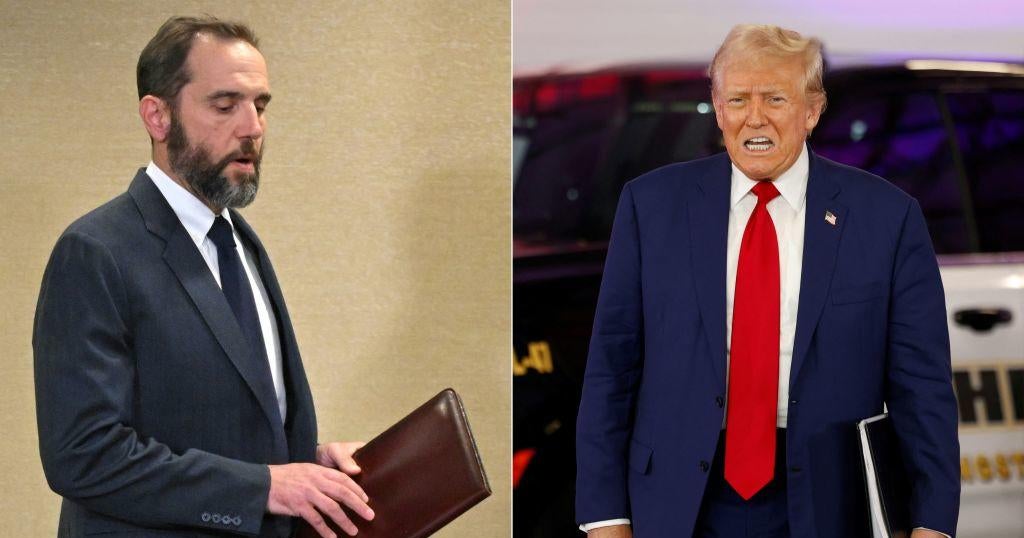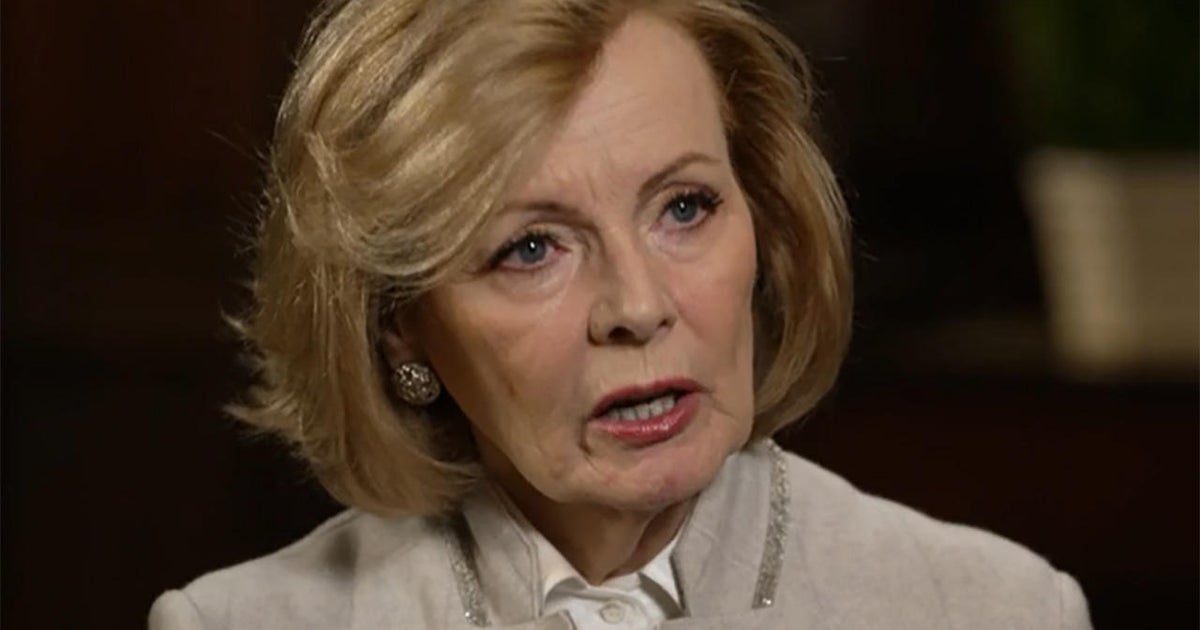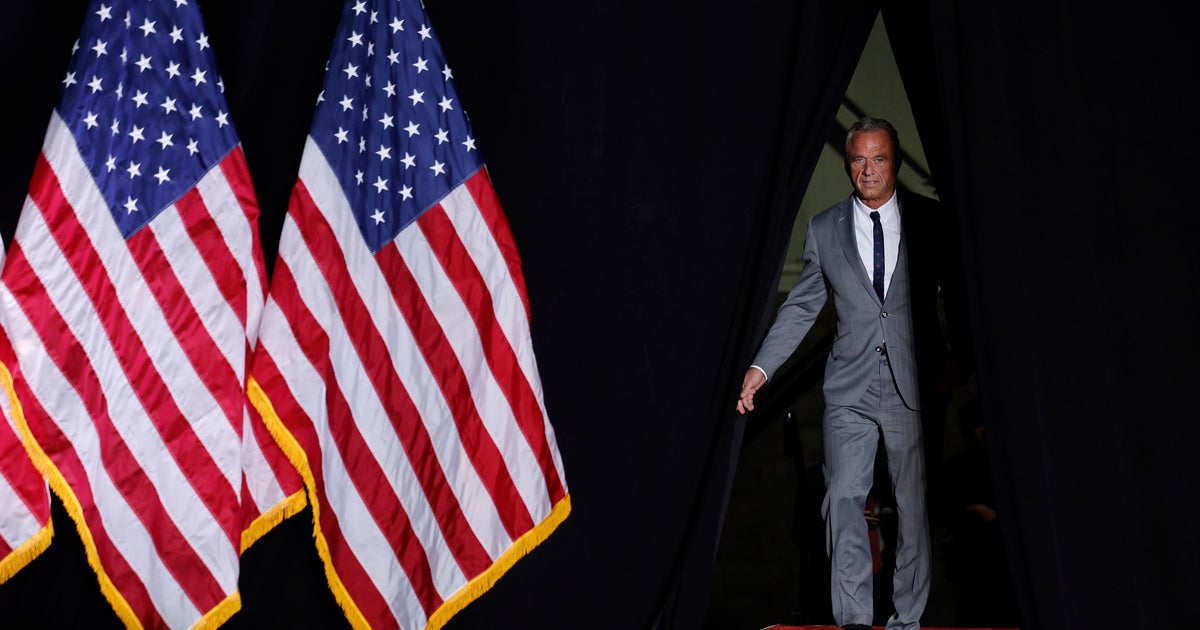Special counsel files critical brief in Trump’s D.C. case, but it remains under seal

Washington — Special counsel Jack Smith has filed what is expected to be a key legal brief in the federal case against former President Donald Trump related to the 2020 presidential election, but kept it under wraps as the judge weighs the next steps.
Smith’s filing, which prosecutors said would run up to 180 pages, is expected to provide the most comprehensive look at the evidence federal prosecutors have compiled in their case against Trump, which was upended by the Supreme Court’s landmark decision on presidential immunity. The filing was submitted to the U.S. District Court for the District of Columbia on Thursday. The court set a deadline of 5 p.m. for the filing.
“We have complied with the court’s order,” the special counsel’s office said in a statement.
The former president pleaded not guilty to four counts arising from what the special counsel alleges was an unlawful scheme to overturn the results of the 2020 election to hold on to power for four more years.
The filing, as well as any accompanying exhibits, could give the public its most substantial window into the special counsel’s investigation into Trump’s alleged efforts to subvert the transfer of power, if the document or portions of it are made available. It contains a “substantial amount” of sensitive information, such as recordings, transcripts and reports of witness testimony that typically is kept secret, Smith’s team said in a separate filing.
Smith’s team filed the document under seal, meaning it was not released publicly. Whether the submission is made available — and when — will be up to U.S. District Judge Tanya Chutkan, who is presiding over the case.
Trump’s 2020 election case
Smith initially brought charges against Trump in August 2023, but a federal grand jury returned a new indictment narrowing the allegations last month after the Supreme Court ruled that the former president is absolutely immune from prosecution for official actions taken while in the White House.
The decision has led to additional proceedings before Chutkan, who must now consider whether the newly alleged conduct can give way to criminal charges in compliance with the Supreme Court’s opinion.
Federal prosecutors have argued the new indictment adheres to the high court’s decision and stressed that Trump was acting as a candidate seeking the presidency rather than the office-holder. Among the allegations that Smith and his team have made is that the former president enlisted Vice President Mike Pence to unilaterally reject state electoral votes during a joint session of Congress on Jan. 6, 2021, which he presided over in a ceremonial role as president of the Senate.
But Trump’s lawyers have asserted that those communications with Pence are subject to immunity and therefore cannot be used in the case against him. They have indicated that they will seek to have the entire indictment tossed out on those and other grounds.
The two sides appeared before Chutkan earlier this month for their first meeting since the Supreme Court’s landmark ruling to hash out a schedule for how the case should move forward. While Trump’s lawyers had proposed a series of deadlines that would push proceedings into 2025, the judge adopted a schedule that sees most filings submitted before the November election.
The path Chutkan laid out means the public could learn more about Smith’s case against the former president, and the evidence he has amassed, before Election Day. Trump is vying for a second term in the White House and is locked in a tight race with Vice President Kamala Harris, with the election now less than six weeks away.
If Trump wins, he could order the Justice Department to seek to drop the charges against him.
Lawyers for the former president have argued that evidence gathered by the special counsel and his team should not be made public before the election and raised concerns to Chutkan about potentially damaging information coming to light as voters begin casting ballots.
The judge, though, has made clear that the upcoming election will not factor into her decision-making, though she said earlier this month that setting a trial date would be an “exercise in futility.”
Any decision Chutkan makes about whether the conduct alleged in the new indictment is covered by presidential immunity will likely be appealed up to the Supreme Court.
In the opinion authored by Chief Justice John Roberts, the conservative majority laid out three categories of presidential acts and corresponding levels of immunity. Actions taken within a president’s exclusive constitutional authority are entitled to absolute immunity, official acts are entitled to the presumption of immunity and unofficial acts are not entitled to immunity at all.
The Supreme Court wiped away one aspect of the indictment under its new standard, finding that Trump is shielded from criminal charges for alleged conduct involving his discussions with Justice Department officials. But they left it to the district court to determine whether a prosecution involving the rest of Trump’s alleged actions, including the efforts to influence Pence’s oversight of Congress’ certification of electoral votes, is allowed.
Chutkan said in a filing earlier this week that she is conducting a “close” and “fact specific” analysis of the indictment’s allegations, as directed by the Supreme Court.
contributed to this report.
World News || Latest News || U.S. News
Source link



